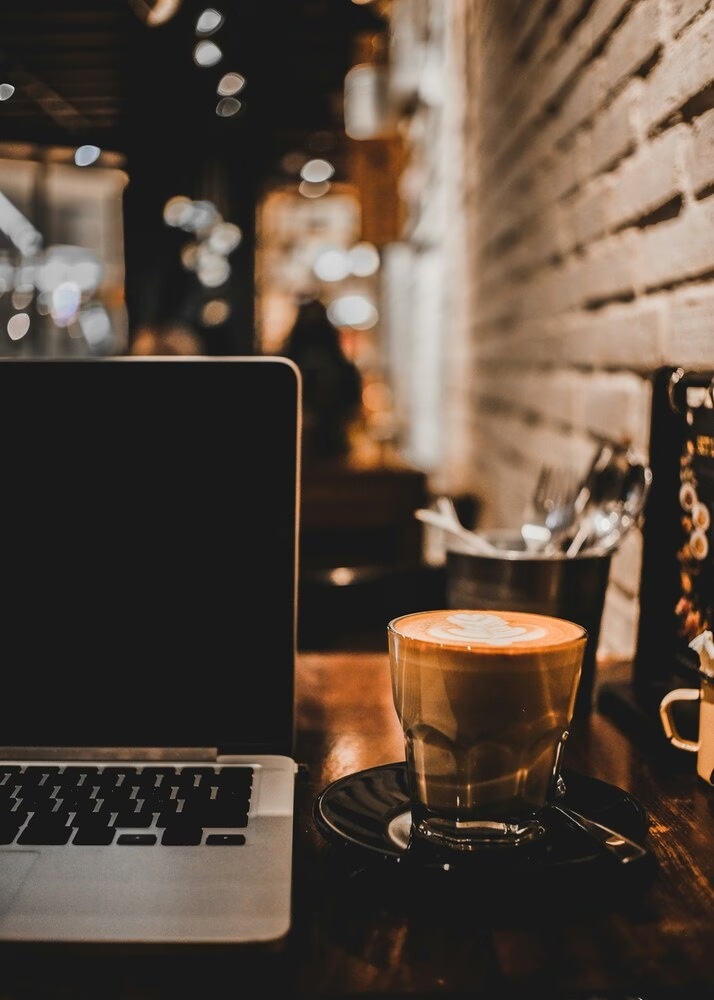Opinion: Should the Café Space Be Political?

Do coffee and politics go hand in hand? We polled our readers to hear their thoughts, and today, we share their responses.
BY OISÍN ROWE
BARISTA MAGAZINE ONLINE
Featured photo by Sina Salehian
Once considered a community gathering space for discourse, the café has a long history of being a place where political ideas are exchanged. But should coffee houses and roasters today enter such discussions themselves, whether in real life or online?
We polled Barista Magazine readers on Instagram to see what they thought, and the responses ranged across the entire spectrum.


Coffee is Political
Some of our readers were strongly in favor of coffee shops being involved in politics, and spoke of coffee itself as political. “As an authorized SCA (Specialty Coffee Association) Trainer, I always try to include political topics during the courses,” Fabiola Solano, trainer at Costa Rica’s Soy Barista, wrote to Barista Magazine. “Since coffee is a political topic, I consider it essential to at least introduce people to these ‘uncomfortable’ conversations.”
However, Fabiola shared that she tries to tailor online discussion when considering what content to post online. “I post about educational topics. Some may think some topics are political, but I try to post more from (an) educational point of view so it doesn’t turn into a nonsensical discussion,” she explains.
Along the same vein, Tim Riley, who runs Heavy Water Coffee in Los Angeles, Calif., emphasizes that he feels engaging in politics is a community responsibility. “Our role in political discussion as a café is to represent the community that supports us,” he says. “Heavy Water is nothing without our customers. In turn, we have an obligation to stand with them and speak on their behalf when injustice is done.”
Tim’s café regularly posts political content online—something that he strongly believes in, but admits can also be an added stress. “Heavy Water is a reflection of my beliefs through the lens of commerce. It is scary to be ‘political’ through my business, knowing that it can directly affect my ability to put food on the table and buy diapers for my child,” he explains, “but the cost seems small in comparison to what Palestinians pay every day—often with their lives—at the expense of our tax dollars.”


The Consequences of Neutrality
Tim of Heavy Water also expresses strong feelings about cafés that choose to attempt “neutrality,” explaining that being able to do so is a luxury that many do not have. “When a café abstains from political discourse, it is exercising a privilege: the privilege to remain silent and unaffected while extracting value from a neighborhood it does not represent,” he explains.
Nate Fields, owner of CREDO Coffee Roasters in Orlando, Fla., shares a similar take. “Neutrality is a luxury only afforded to the enfranchised,” he says. He also mentions that, while CREDO is not against posting political content online, he does exercise a certain level of caution.
“Whether it’s sourcing, roasting, and serving coffee or feeding our unhoused neighbors, advocating with our representatives and city council for policy change, or helping build networks of solidarity and survival, we prefer our impact to be tangible and in-person—not just for content and engagement metrics,” Nate says. “We don’t chase controversy or clout online.”
However, Nate mentions that when CREDO came forward as an anti-Zionist business, it did cost them. “We’re no strangers to heat. We’ve been hit with slews of 1-star Google reviews from Zionist groups and have lost major wholesale partnerships over our public stance against apartheid and genocide. But we’re with the people, and the people are with us,” he says. “When you need us most, you’ll find us right where we’ve always been: quietly working and serving coffee to the city and nation we so love.”
The Opposition
While many Barista Magazine readers expressed the importance of speaking up about political issues, others had concerns. Some readers said that politics should only be mentioned when centered around the coffee industry, while others shared their decision to omit such discussions from their businesses entirely. One commenter wrote, “Social media is cramming news and events down my throat left and right, and I don’t want that for my customers.”
Within these decisions, almost every person cited their community as a reason for or against sharing political views online—and all considered that there is an impact, a power, to what they decide to, or not to, say.
ABOUT THE AUTHOR
Oisín Rowe (they/them) was born in Belfast, Ireland, and raised in Boston, Massachusetts. They are a trans and disabled writer, editor, and poet.
Subscribe and More!
As always, you can read Barista Magazine in paper by subscribing or ordering an issue.
Read the June + July 2025 Issue for free with our digital edition.
For free access to more than five years’ worth of issues, visit our digital edition archives here.
Source: Barista Magazine



